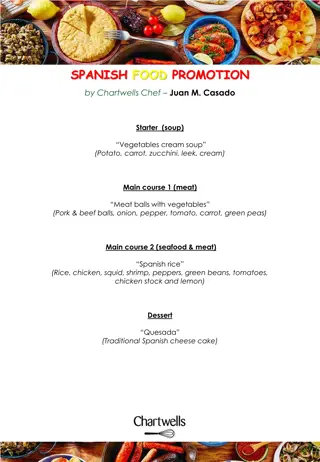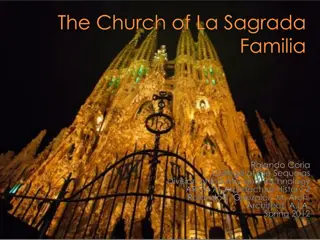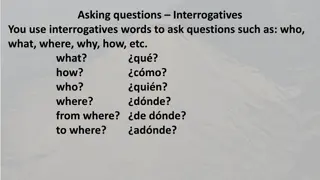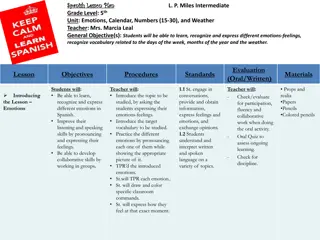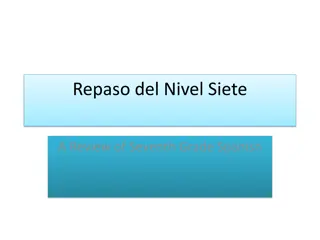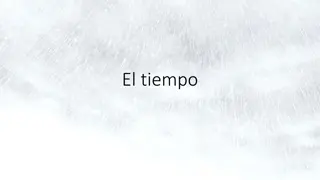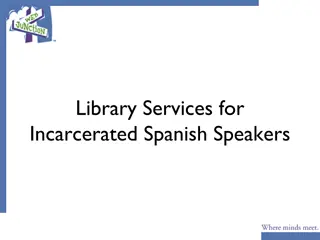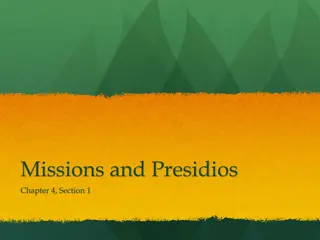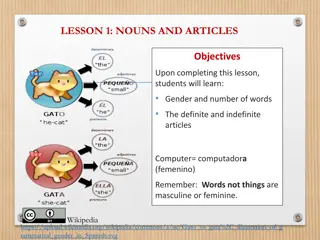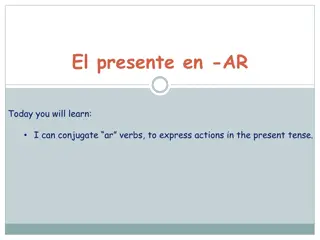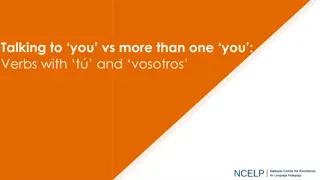Vocabulary and Professions in Spanish: La Familia
This lesson covers vocabulary related to family members and professions in Spanish. Learn about family members such as madre (mother), padre (father), hijo/a (son/daughter), and professions like enfermero (nurse) and abogado (lawyer). Explore the changing concept of family in Spanish-speaking countries, from traditional nuclear families to non-traditional setups. Practice describing your own family and learn useful expressions in Spanish.
Download Presentation

Please find below an Image/Link to download the presentation.
The content on the website is provided AS IS for your information and personal use only. It may not be sold, licensed, or shared on other websites without obtaining consent from the author. Download presentation by click this link. If you encounter any issues during the download, it is possible that the publisher has removed the file from their server.
E N D
Presentation Transcript
LESSON 13 VOCABULARY: LA FAMILIA In this lesson you will learn about: Family members Some professions https:// https://commons.wikimedia.org/wiki/File:Draw_family_of_6.png This image is licensed under a Creative Commons Attribution 4.0 International License
OVERVIEW This chapter introduces you to the vocabulary of the family. The nouns follow the basic rule of gender formation: masculine: -o, feminine-a Example: hermano, hermana Exception: Yerno (son-in-law), nuera (daughter-in-law) This is your vocabulary for this lesson: Madre (mam , mami) Padre (pap , papi) Hijo/a (son/daughter) Hermano/a (brother/sister) Abuelo/a (grandfather/grandmother) T o/t a (uncle/aunt) Primo/a (cousin) Sobrino/a (nephew/niece) Suegro/a (father/mother in law) Padrastro/madrastra (step father/mother)
Can you describe your family now? (Use mi, mis =my, singular and plural. See example below. Mi t o, Carlos, vive (lives) en Boston. El es inteligente y muy simpatico. Mis padres son de (are from) Nueva York. Mi padre es abogado y mi mam es doctora. (You may be required in a test or examen to describe one or several members of your family). This is also the moment to learn new useful words to use in oral and written Spanish: -Pero (but) Yo hablo espa ol pero no muy bien -Sin embargo (however) No tengo dinero sin embargo tengo un Ferrari -Nunca/siempre (never/always) Yo nunca/siempre trabajo el lunes -Por eso (for that reason) Peter no tiene dinero por eso no viaja mucho. -y/o (and/or)
OVERVIEW Professions:. Most of them are cognates (similar to English). Notice that periodista and artista can be either masculine or feminine. The only way of knowing the gender of the professional is through the article: El, un artista/ la, una artista. Other professions you may be interested in knowing: -enfermero= nurse -contador= accountant -abogado= lawyer -dise ador= designer -vendedor= salesperson -empleado= employee, clerk -cient fico: scientist
CULTURE: THE FAMILY The concept of family is changing in the Spanish speaking countries. In the past, extended families (grandparents, parents and children) often lived in the same dwelling. Today, fewer grandparents live with their children, and the number of traditional nuclear families (mother, father and children) as well as non-traditional families is increasing. In spite of these changes, family life is still an important social institution in Hispanic culture. https://commons.wikimedia.org/wiki/File:Addams_Family_main_cast_1964.JPG This image is licensed under a Creative Commons Attribution 4.0 International License
THE FAMILY Of course, the sociological information you find in a language textbook is quite limited and often simplistic. As an alternative reading I encourage you to read a section, the introduction, of a book by Roberto Suro, a professor at the University of Southern California s Annenberg School for Communication. He is also a veteran journalist and widely published researcher on immigration and the Hispanic population. Notice the emphasis on the diversity of origin and experience of the so called Hispanic population in the United States. Also remember that the term Hispanic is not used outside the United States. In Latin America people are Mexicans, Argentinians, Peruvians, etc. Roger Celis This work is licensed under a Creative Commons Attribution 4.0 International License


